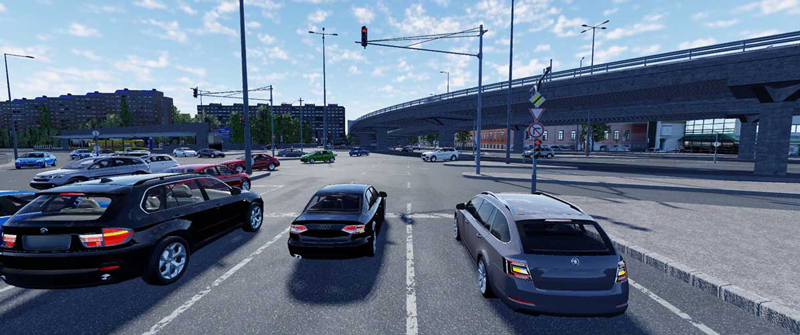New levels of realism for autonomous technology simulation
AImotive, the full service autonomous driving technology provider, has released its aiSim2 simulator to significantly upgrade the speed and quality of testing and validating self-driving solutions. Unveiled at SLUSH, aiSim2 is the next generation of the award-winning aiSim, powered by a purpose-built engine that ensures a high level of physical realism, deterministic running alongside optimised hardware utilisation and flexibility.
Gergely Debreczeni, Chief Scientist at AImotive said: “We’ve spent thousands of hours comparing results of our simulations for aiDrive to what we’ve observed in our fleet of test vehicles. We realised that gaming engines, are not sufficiently accurate for automotive simulation. We believe the aiSim2 engine is a game changer, enabling us to deliver superior capabilities to our customers and partners as a part of a hardware-in-the-loop/software-in-the-loop testing for AVs.”
A key feature of aiSim2 is its ability to deliver higher quality physical realism than game engine based approaches. While leading gaming engines deliver impressive real-time visual performance, they do so at the expense of not strictly obeying the laws of physics. Most notably light may act in ways physically impossible in our reality. aiSim2 has been engineered to overcome these limitations.
Vitally, aiSim2 ensures deterministic results. Due to game engine limitations, any tests conducted on a game-engine based simulator will not provide deterministic results. This means that minor differences in calculations may cause different results in identical tests run on the system. The aiSim2 engine is designed to be deterministic; every frame will be rendered in the same way whenever it is loaded or reloaded to a pixel-perfect level.
As a result, the self-driving system under testing is consistently given the same input for the same scenario, meaning that different outputs are not caused by minor differences in rendering but changes to the self-driving system. This determinism is also a core element of the systems flexibility ensuring each frame is rendered in the same on heterogenous hardware platforms from a laptop to the cloud.
aiSim2 is built on AImotive’s experience developing aiDrive, a full stack self-driving software solution. The new simulator offers flexibility and scalability by being hardware agnostic, utilising The Khronos Group’s Vulkan API to maximise portability and flexibility to enable efficient execution on a wide range of single and multi-GPU system configurations. Optimised to provide outstanding utilisation of available computing resources, the simulator enables accelerated testing when compared to the game-engine based previous generation of aiSim. Providing the simulator with the increased performance needed to render comprehensive environments in real time is vital for consistent hardware-in-the-loop testing.

“Self-driving cars are one of the most important – and challenging – applications of computer vision. Simulation is a compelling technique to help achieve the robust testing needed to make self-driving systems safe,” said Jeff Bier, founder of the Embedded Vision Alliance. “AImotive's first-generation aiSim2 was honored as a 2018 Vision Product of the Year winner by the Embedded Vision Alliance due to its innovative approach. We applaud AImotive’s continued innovation with aiSim2.”
AImotive is currently working on the advancement of autonomous vehicle technologies through its aiDrive self-driving software stack and aiSim simulator with partners such Groupe PSA, Samsung. aiSim2 will be on show at CES 2019 in January and available for licensing in Q1 2019.





